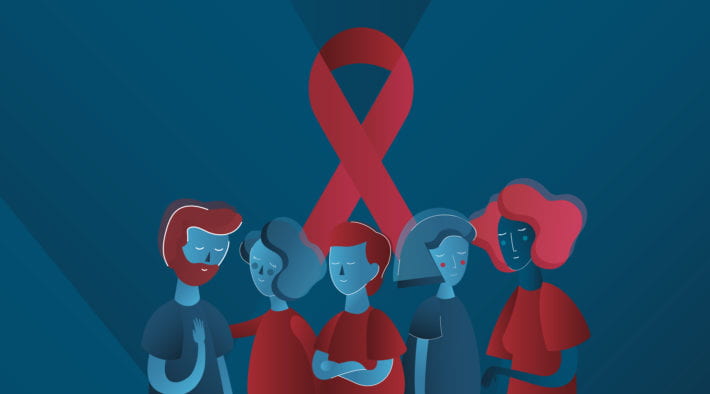Written by Kim Furlow, communications manager with the Institute for Public Health

Assistant Professor of Medicine, Aaloke Mody, MD, in the Division of Infectious Diseases and Department of Medicine is a collaborator with both the Global Health Center and the Center for Dissemination and Implementation at the Institute for Public Health. With his training in HIV, infectious diseases and epidemiologic methods, he is passionate about delivering high quality and patient-centered care in resource-limited settings. Mody’s soon-to-be-funded NIH grant will support a project in Zambia that helps patients who are living with HIV to remain in care long term. Here is more on why Mody is in our Global Health Spotlight!

Mody will tell you that HIV treatment has advanced tremendously over the past three decades. Today, patients living with HIV can take a single daily pill and extend their life expectancy to equal those who don’t have HIV, and with no risk of transmitting HIV to a partner. Despite these advances, barriers to consistent treatment remain, and suboptimal retention in care, Mody says, is a major hurdle to successful HIV treatment.
In Africa, 30 to 50 percent of individuals often cycle in and out of care due to barriers such as access to medication; life circumstances such as work-related responsibilities; unexpected travel; or family commitments like care of a sick relative. Others may had a bad clinic experience or have a hard time accepting that they are living with HIV, Mody says.
Mody’s team hopes to use grant funding to support a study that works with those Zambian people living with HIV to bring them back to care and assess and address barriers so that they can continue HIV care long term. Mody says intervention strategies include connecting patients to a navigator who can help coordinate their care and offering community-based medication delivery so patients have easier access to their medication (rather than having to come in-person to the clinic to receive them.)
This innovative study offers flexibility and can be tailored to help address various individual barriers and determine which combination of strategies works best to quickly get people back into care but then ensure they stay in care.
Aaloke Mody, MD, primary investigator
Mody says the study will not only help inform public health programs and policy for individuals living HIV in Zambia, but also has far-reaching implications. “Because retention in care is major challenge for all chronic health conditions, including HIV, hypertension, diabetes, in Africa and in the U.S.,” Mody said, “the results from this study can help lay the groundwork for ways we can reengage people back into care in St. Louis and globally.”
Mody says this project builds on others he has conducted in Zambia that focus on the patient-centric care experience. Other studies have measured client and provider experience and satisfaction. As this study helps improve health care work behaviors, it can in turn, improve retention in patient care. Collaborating with the Global Health Center, Mody says—particularly in the Early Stage Investigator monthly meetings—has been very helpful in developing his grant proposal. He presented the concept and received valuable feedback from group members that helped solidify key points in his grant application. “Collaboration with the center is a great way to connect with other individuals at or near your career stage, who have similar interests but may not be in your research group. We discuss challenges, successes, and learn from each other’s experiences. It’s also nice to support colleagues and peers.”